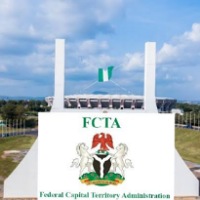Motoring
Ford Fiesta back in Japan despite past failure

TOKYO – The complaint is that Toyota Motor Corp. and other Japanese manufacturers get an unfair advantage in selling their products in the U.S. while U.S. makers are denied equal access in Japan.
Japanese automakers say they are competing fairly, but are relieved the dollar is strengthening as a result of aggressive Bank of Japan policies designed to weaken the yen.
Ford has struggled in Japan and stopped selling the Fiesta after selling just 2,800 of them from 2004 through 2007. The Fiesta is one of Ford’s top-selling models, with more than 720,000 sold worldwide a year.
Last year, Ford sold 3,500 vehicles in Japan, about half of them Explorer sport-utility vehicles. Even that number is a triumph for Ford, which has managed to increase Japan sales every year for the last four years.
General Motors Co. has also said it is trying to beef up its business in Japan, although it barely sells 1,000 vehicles a year here. It showed off a new Cadillac and Corvette last month in Tokyo.
Although Japan’s 5 million-vehicle auto market has languished in recent years, last year was a record year for imports at 280,540 vehicles, comprising 8 percent of auto sales, according to the Japan Automobile Importers Association.
 American automakers have long suffered an image problem in Japan as making only lemons. And Japanese manufacturers enjoy a loyal following in this nation, whose economy depends on the welfare of the likes of Toyota and Honda. Toyota controls about 40 percent of the Japanese auto market.
American automakers have long suffered an image problem in Japan as making only lemons. And Japanese manufacturers enjoy a loyal following in this nation, whose economy depends on the welfare of the likes of Toyota and Honda. Toyota controls about 40 percent of the Japanese auto market.
The best-selling models for the year in Japan, announced Thursday, show the Toyota Aqua at the top, with more than 262,000 sold, followed by the Prius, Honda Fit, Nissan Note and Corolla, in that order — all small cars. The Aqua and Prius are gas-electric hybrids.
Exchange rates have been moving favor of Japan exporting to the U.S. and elsewhere. A strong yen erodes the value of overseas revenue when translated into yen, a big drawback for the Japanese. But the dollar has soared lately to about 105 yen, compared with about 90 yen a year earlier.
Still, Ford officials were hopeful.
“This is for those who might want a different kind of compact,” Morita told reporters at a Tokyo cafe displaying the Fiesta, which goes on sale here Feb. 1. “Our business in Japan will become stronger.”
Instead of dwelling on the larger trade issues, Morita and other Ford officials stressed the Fiesta’s efficient 1.0 liter engine called EcoBoost, “kinetic” exterior design and trademark driving performance.
Ford will also introduce the EcoSport sport-utility vehicle later this year, bringing to eight the Ford models on sale in Japan, including the Mustang and Focus.
“We want to work on what is under our control,” said Morita. “We think we have a chance.”
Yoshiaki Kawano, auto analyst at IHS Automotive, said imported cars in Japan are becoming smaller and coming down in price, like the Fiesta.
“People buying imports in Japan before used to be lawyers and doctors,” he said. “Now we have a new breed of younger people, who have money to spend from stock investments and entrepreneurship.”
– WASHINGTON POST
Motoring
FCTA Pulls Plugs On Taxi Rank, Terminal Services Contracts

The Federal Capital Territory Administration (FCTA) has ended contracts with taxi rank and terminal operators due to their failure to meet engagement terms and conditions.
Mr. Ubokutom Nyah, the Mandate Secretary of the Transportation Secretariat, FCTA, made this announcement during a meeting with managers of these terminals and taxi ranks in Abuja.
Nyah clarified that due to the operators’ failure to fulfill their engagement terms, the FCTA had to terminate their contracts.
He instructed them to transfer control of the ranks to the Administration within three months, starting from Nov. 21.
He lamented the presence of unauthorized motor parks in the city and assured the readiness of the Administration to establish proper taxi ranks and terminals in the capital.
He revealed that personally visiting the city’s taxi ranks, terminals, and unauthorized motor parks gave him direct insight into the poor condition of these facilities.
He emphasized that as the federal capital city, Abuja deserves better, highlighting that the poor condition of these facilities attracts various criminal elements.
He said “We must rid Abuja of all these. I have gone round the taxi ranks, and of all the places I visited, not one is worthy to be called even a village motor park.”
The Mandate Secretary stressed that the intention wasn’t punitive; rather, it aimed to revamp the sector, introduce new engagement terms, and modernize taxi ranks and terminals in the federal capital.
He also highlighted the plan to increase the number of terminals and ranks where necessary, which would positively impact the administration’s revenue.
He emphasized that this measure was part of a broader effort to eliminate illegal motor parks in Abuja and curb the associated criminal activities.
In response, Mr. Adebisi Lawal, the Operator of Jahi Taxi Rank, praised the administration’s initiative to modernize the taxi ranks and terminals.
Lawal urged the administration to prioritize current operators’ involvement in the selection of new developers for the modernization of the taxi ranks and terminals.
Motoring
Power Show Sees Soldiers Batter LASTMA Officer

It was a show of power at the Ojota area of Lagos on Monday as soldiers pummeled an officer of the Lagos State Traffic Management Authority, (LASTMA).
Eyewitness accounts claim that the ugly scene played out around 8am, and saw about eight soldiers pounce on the yet to identified LASTMA official, while his colleagues took to their heels.
The video of the melodrama has gone viral, where the LASTMA official was appealing to the soldiers, who appeared bent on ‘teaching him a lesson’.
This onslaught comes on the back of a reported assault of a soldier at the same location by LASTMA officials last week.
It would appear that what played out today was the army asserting its authority and defending their khaki as the armed soldiers carried out what looked like a revenge mission.
Eyewitnesses further averred that the victim was rushed to a nearby hospital, after the soldiers left the scene.
It was gathered that the authorities at LASTMA has reported the incident to the military authorities who are said to be looking into the matter.
Meanwhile many members of the public are rejoicing that the soldiers have taught the crude LASTMA official that power is stronger than power, for all their atrocities against motorists on Lagos roads.
Motoring
Intra-City Fares Skyrocket By 98% Month-On-Month – NBS
The impact of the removal of subsidy on Premium Motor Spirit (PMS), otherwise known as petrol, has seen the pump prices of the product skyrocket with a corresponding increase in the cost commercial transportation in Nigeria.
According to the National Bureau of Statistics (NBS), intra-city bus transportation fares across Nigerian cities, measured between May and June 2023, increased from N649.59 to N1,285.41 in June 2023.
This translates to 98 percent growth or N635.82 within the month in view.
The NBS made the data available in its Transport Fare Watch report for June 2023.
In the report, the NBS also shared the breakdown of bus journeys within the cities per drop for constant routes; bus journey intercity (state route); charges per person, amongst others.
On a year-on-year basis, the report has it that bus fares rose by 120.63 percent from N582.61 paid by commuters in June 2022.
The average fare paid by commuters for bus journey intercity per drop rose to N5,686.49 in June 2023 compared to N4,002.16 in May 2023 indicating an increase of 42.09 percent, month-on-month.
The report read, “The average fare paid by commuters for bus journeys within the city per drop increased by 97.88 per cent from N649.59 in May 2023 to N1,285.41 in June 2023.
On a year-on-year basis, it rose by 120.63 per cent from N582.61 in June 2022.
“In another category, the average fare paid by commuters for bus journey intercity per drop rose to N5,686.49 in June 2023, indicating an increase of 42.09 on a month-on-month basis compared to N4,002.16 in May 2023.
“On a year-on-year basis, the fare rose by 55.25 per cent from N3,662.87 in June 2022.”
Biztellers reported that the twin forces of forex pressure and increasing price of Brent in the global market would likely see the pump prices of petrol, increased again in no distant time in Nigeria.











